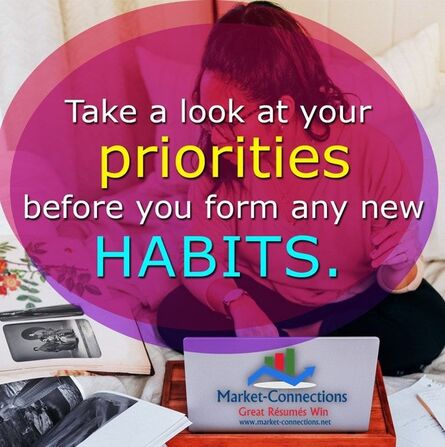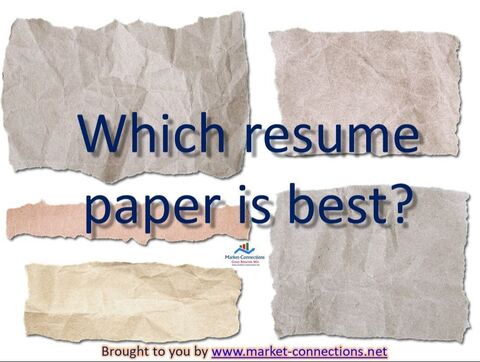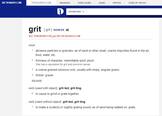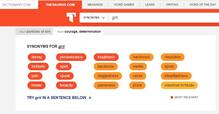How To Get Promoted6 Tips For A Faster PromotionSo, you’ve been working in the same position for over a year and no one has said anything to you about a promotion or increase in pay. There could be many reasons for a company not giving you a promotion or a raise and some of them are valid, such as a downturn in the profits of the company or even your own job performance. However, not all companies are suffering downturns. If your company is thriving but you still haven’t gotten a raise, there are many things you can do to get noticed - in a good way - by your company superiors and move along the promotion process. Strategies To Help You Move Up The Ladder
14 Habits That Make You a More Valuable EmployeeHow To Be A Valuable Asset On The JobMaking yourself more valuable to your employer leads to a more successful career. More opportunities open up when you have a resume that stands out and a reputation for being a team player. You’re likely to enjoy more job satisfaction too. A productive workday is bound to feel more gratifying than watching the clock until it’s time to go home. While individual bosses and companies will have their own priorities, there are some qualities that are appreciated in just about any workplace. Take a look at this checklist of habits that make you a valuable asset on the job. Increasing Your CompetenceYour performance plays a big role in how much value you contribute at work. Learn about high performance habits. Dedicate yourself to making a consistent effort and delivering high quality work. These strategies will help you to increase your competence:
Working Well with OthersSoft skills matter too. They’re the kind of traits that can make you someone who others enjoy working with.
Try these techniques to strengthen your soft skills:
Position yourself to stand out in any field. Being recognized as a valuable employee will help you to manage your career and achieve your own definition of success habits. Resume Paper Which resume paper is best? Which resume paper is best?
In recent years, job search methods and practices have become increasingly digital. However, as you move forward with your job search efforts, you will soon learn that hard copies of your resume still play a significant part in your success. Two of the most common scenarios where you will need hard copies of your resume are when you attend a job interview or a job fair and most people tend to overlook the actual paper they use to print their resume. Many people wonder “how to write a resume that will stand out”. Of course, the content of your resume matters more than the resume paper. But let’s not forget that you are in a competition. It is when you go the extra mile and learn how to choose the right resume paper that you will make your resume stand out from the crowd. Not to mention resume paper lasts much longer than regular paper. Below are brief descriptions about the varieities in style and quality when it comes to choosing resume paper. What resume paper should I use?
Resume Paper Color
The available shades are usually white, light grey, ivory, and even blue/grey.
Resume Paper Weight
Resume paper quality is usually categorized based on weight and the varieties that you may find often available are 24lb/m2 OR 32lb/m2. The weight varies based on paper thickness. You will also find that they are substantially different in price.
We recommend the 24lb/ m2 because it is a little thicker than standard copy paper but it is not as thick as a business card. The 24lb/ m2 also goes through most home office printers without complication. Resume Paper Texture
There are many textures available and they vary in the weave and finish of the paper. More often than not, you will find linen or cotton. Other kinds include coated, uncoated, laid, etc. As you will shop for resume paper, feel the different textures to find out which you prefer.
We recommend the cotton paper as it is more often used as a popular choice for resume paper and it has a smooth finish. On the other hand, linen resume paper feels like an embossed paper because it is woven-like. Resume Watermark
Watermark is used on high-quality paper. As you use any brand of resume paper with watermark, make sure the watermark is only visible under the light because you do not want the watermark to distract attention from your resume content. Next, make sure your resume is printed right side up. In other words, when you're holding the resume as you're reading it, the watermark should be readable (I am not saying visible, but when held under the light, the watermark should be seen the right side up and not backward).
Of course, this is not a deal-breaker obviously but why take the risk of recruiters noticing that your resume is printed backward and thinking you are sloppy? Grit MeaningIf you choose Perseverance, Self-Discipline, and Passion as three different traits and combine them together, you have just built a new characteristic and it's called GRIT. Many teachers, psychologists, and other professionals now believe that having grit is more important than having a high IQ score, fine genes, or the highest grades. And thus, grit continues to build momentum. What is GritPut in basic terms, grit is perseverance and passion for meaningful, long-term goals. It’s the capacity to continue to persist at something you’re passionate about and to persevere even if obstacles get in your way. This is the type of passion that’s about commitment and direction, not infatuation or intense emotion. With this type of passion, you’re able to remain committed to tasks that are boring, difficult or challenging. Not only that, but grit is about perseverance and self-discipline too. To define perseverance, I'd say it means sticking with it and continuing to work hard, even if you experience failure or difficulties. Grit is incredibly important in life because it drives our success and achievement. Being naturally talented and smart is great, however, if you want to truly thrive and do well in life (and who doesn’t?) you need to be able to persevere. Without grit and resilience, talent can amount to nothing but unmet potential. It’s only when you put in effort that your talents become skills that can lead to success. What Is ResilienceLet’s look more closely at resilience. To define resilience, I'd say it is being able to recover from even the most difficult of life’s events. It is your ability to cope with adversity, withstand it and, when you fail, to bounce back and carry on growing, even when life takes a downturn. Resilience isn’t a trampoline. You won’t be up one moment and down the next. Rather, it’s more like a mountain climb with no trail map. It will take strength, time and support from others. You’re sure to experience many setbacks on the way. Eventually, though, you’ll get to the summit and be able to look back and see the distance that you’ve traveled. It’s important to note, though, that resilient people will still experience emotional upheaval, suffering, and stress. While it’s common to equate being resilient with being mentally tough, instead, demonstrating resilience means working through that suffering and emotional pain and coming out the other side stronger and more positive. Resilience is vital since it gives you the strength you need to process hardship and overcome it. If you lack resilience, you’ll be overwhelmed too easily, and can be tempted to adopt unhealthy coping strategies to get through the tough times. Resilient people, on the other hand, can tap into their own support systems and strengths when it comes to overcoming challenges and working through problems. Resilience comes in two forms. Emotional resilience allows you to tap into your own optimism, even if you’re trying to cope in a crisis. Meanwhile, physical resilience is your body’s capacity to adapt to a challenge and to recover more quickly. Both are helpful when it comes to overcoming adversity. The good news is that resilience isn’t a trait that’s fixed in place. You can bolster or even build resilience in yourself by changing your behaviors and patterns of thinking, helping you to find more inner strength. Grit and Resilience In The WorkplaceOne obvious situation in which grit and resilience are vital to success is in the workplace. Most of us have wondered from time to time why this or that person is so successful in their work. It’s important to understand that their success doesn’t come from their intelligence, their talents, or even their willingness to work for extra time or take on more commitments than are strictly necessary.
In the modern workplace where rivalry, strict deadlines, staff cutbacks and organization change are all commonplace, this type of success relies solely on the individual’s ability to not just cope, but to know how to stay motivated after a setback. When you encounter the inevitable challenges, you’ll encounter in the workplace, you need to be resilient and bounce back. The workplace will always present several stressors to its employees. So, how can you become more resilient at work? It’s important to be aware that resilience is actually just a skill, and like other skills, it can be learned and improved with practice. A resilient employee can build strong relationships and connections with others. These are high-quality relationships that are characterized by several features, especially effective communication. Resilient workers who have positive working relationships do everything possible to help others to become successful at work since they’re team-players aiming for a win-win situation with all their fellow employees. A resilient employee will also nurture the working network they’ve forged, building trust consistently with other people and fostering positive emotions with other employees. The modern workplace is typified by stress, and with internet access and cutting-edge technology, work is constantly present in our lives. A resilient worker can manage this stress effectively, preventing it from becoming detrimental and overwhelming. By engaging actively in self-care, nurturing themselves when they experience stressful times, a resilient employee can avoid burnout. A further characteristic of resilient employees is that they are true to their real selves. They behave in ways that align with their personal beliefs and values. Essentially, they demonstrate grit in their determination to achieve their challenging and ambitious goals, whatever obstacles they encounter. A gritty, resilient worker perceives their work as meaningful and, thanks to this mindset, they feel their work will achieve an outcome that is valuable. This equips them more effectively to cope when work is stressful. Even with a resilient mindset, employees will experience stress at work. But, a key characteristic of such workers is that they monitor their thought patterns when under duress and identify the patterns that impede their chance of success. Resilient workers are also adaptive and flexible, ready to cope with change in the workplace. So, how can you develop more resilience and grit in your working life? Take a positive stance – this allows you to adapt more effectively to adversity, giving you more control over your working environment. Putting motivation and energy into your work will build personal resilience. Having emotional insight – with emotional insight, you can be more aware of the emotions you’re experiencing, and whether they’re positive or negative. You’ll also be able to consider the impact of your behavior and reactions on yourself and others. Developing balance – personal resilience is achieved through a healthy work/life balance. You need to take the time to recuperate, unwind and relax so you can bounce back from stress. Fostering spirituality – finding purpose and meaning in your work and believing it contributes to a greater good buffer the negative effects of stress. Becoming reflective – if you can be in tune with your emotional reactions and feelings, this helps to protect you from the negative effect of stress. An awareness of your potential triggers will allow you to prepare effectively and gather the necessary resources so you can bounce back in the face of adversity. How To Find Contract WorkOne out of every eight employers utilizes temporary or contract employees. It is estimated that between 17 million and 41 million people work as consultants, freelancers, contract workers, temporary employees, seasonal or on-call workers, and interns. About 15 million of those are considered “full-time independents,” working more than 15 hours a week. On September 25, 2020, The Federal Register published Independent Contractor Status Under the Fair Labor Standards Act. It explained that MBO Partners, a leading American staffing firm, finds that almost half of U.S. adults — 47.8 percent — report either currently working or having worked as an independent worker at some time during their career. Over the next five years, this number is projected to increase to 53 percent of the workforce either currently working as an independent worker or who will have worked as an independent. Independent work — in particular, contract work — is attractive to individuals who are looking to return to the workforce while or after caring for children or aging parents and those who are looking to transition from full-time employment into semi-retirement. It’s also increasingly an option for those who are starting their careers. This is supported by the statistics: Millennials — born between 1980 and 2000 — made up 38 percent of the full-time independent workforce in 2019, according to MBO Partners’ “State of Independence” report. Baby boomers, born between 1946 and 1964, encompass 33 percent. Temporary and contract workers are an important part of the workforce. Contract workers offer companies flexibility in staffing and help fill in gaps (especially in growing companies), to address seasonal needs, or when permanent employees are on leave, sabbatical, or vacation. Contract and temporary opportunities are particularly attractive to jobseekers during recessions and economic downturns. For the jobseeker, the interview-to-hire process is often shorter, meaning you can be back to work more quickly. Even companies that have enacted a hiring freeze may still be taking on temporary or contract employees, because this money often comes from a different budget than traditional salaries. Eighty percent of full-time independent workers are independent by choice. More than half say they will not go back to a traditional job. In addition, 53 percent of full-time independent workers report they feel “more secure” working independently. This is perhaps a reflection that even traditional employment has no guarantees of stability. And a growing number of contract positions are for remote work, removing geographic proximity from the requirements for working these types of positions. What Is Contract Work?Temporary positions — or contract work opportunities — are an alternative to full-time, permanent work. Contract and temporary work can also be a side hustle to supplement your income. In 2019, 15 million people had a side hustle, an increase of more than 40 percent since 2016. Contract workers may be self-employed or may be contracted through an agency. Self-employed workers are responsible for their own taxes, insurance, and benefits, while agencies often employ contract workers as W-2 employees (handling the billing, paperwork, and taxes for the contract employee). There is sometimes a perception that contract work is only for low-paying, lower-skill jobs. This isn’t true. There are contract opportunities available for almost any field and industry and for a wide variety of positions — up to, and including C-suite roles. Contract work opportunities are common in creative service professions as well as the information technology, financial services, and healthcare industries. Among full-time independent workers, the average income is $68,300, according to MBO Partners. This is higher than the median family household income in the United States ($59,039). About 20 percent of full-time independent workers earn more than $100,000 a year. In 2019, 40 percent of independent workers had a 4-year college degree or higher, including 17 percent who hold advanced degrees. Jobs may be listed as “contract” or “temporary ” — but they’re not the same. Contract positions are for a specified time period. Temporary positions, on the other hand, may not have a defined time period. Temporary workers may be directly employed by an employer, or may be employees of a temporary agency. Contract workers, unless hired through an agency or consulting firm, are independent contractors. This means you are responsible for your own taxes, insurance, and benefits. In essence, you are self-employed and the company you’re working for is your client. One important distinction between permanent and contractor or temporary positions has to do with the Internal Revenue Service. IRS regulations dictate that the employer cannot have as much control over how a contract worker does his or her job as it would with a permanent employee. While the requirements of the position don’t change if it’s permanent or temporary, the employer can’t define how the work is done by a contract worker. Because it’s easier to find a job when you have a job, accepting a contract position makes you more attractive to prospective employers. In addition, contract work opportunities can often lead to a full-time, permanent position, especially if the opportunity is advertised as a “temp-to-hire” position. This type of arrangement allows a company to see if the individual has the skills, education, and personality the position requires before committing to a permanent position. Advantages and Disadvantages of Contract WorkAs with any type of position, there are advantages and disadvantages to contract work opportunities. Some advantages:
Some disadvantages:
Where to Find Contract WorkContract work opportunities can be found in many of the same ways as traditional job opportunities are found: networking, online job boards, and direct contact with prospective employers. Online When searching for contract opportunities online, look to the traditional large job boards such as Indeed.com, SimplyHired.com, CareerBuilder.com, Glassdoor.com, and Monster.com. Use search filters to identify contract and temporary roles (not all job boards offer “contract” or “temporary” as search filters, but many do). Also consider specialized marketplaces, like FlexJobs.com, Outsourcely, WorkingNomads.co, or industry-specific job sites like Mediabistro, ProBlogger.com, Dribble.com, or Authentic Jobs (for creative and media opportunities) or Dice.com or Stack Overflow (for technology positions). You can also find online job boards specifically for remote opportunities. These include: Remote|OK Remotive Hubstaff Talent Skip The Drive Virtual Vocations Jobspresso We Work Remotely Some of these sites require a subscription to access job opportunities, but may also offer benefits, such as access to education and training. Not familiar with marketplaces in your target industry? Search for “contract work” + your industry or “freelance jobs” + your industry and see what comes up. For example, a search of “contract work” + public relations yielded several online sites, including RemotePRJobs.com (a subscription site) and PeoplePerHour.com. There are also online marketplaces to match freelancers with opportunities. These include sites like Guru.com, Freelancer.com, and Upwork.com. Some of the gigs posted are extremely short-term (a one-time project, or a one-week project), while others are contract opportunities lasting 3 months, 6 months, or longer. Social Media Search LinkedIn for contract work opportunities. One of the search criteria is “Job Type” and both contract and temporary positions are available in the search. (If applicable, also choose the “Remote” search criteria to expand beyond your current geographic area.) You can also check out Company Pages on LinkedIn and see what other companies LinkedIn recommends you connect with or follow. Word of mouth is consistently reported as one of the top ways to secure contract work. Staying connected with previous co-workers and supervisors on social media ensures you are top-of-mind when a contract opportunity comes about. If you are unemployed, be sure to let your network know you are open to contract work opportunities. Direct Contact Another source of contract opportunities is previous employers. This is especially relevant if your current position was eliminated due to an economic downturn. Your previous employer may be interested in hiring you as a contract employee. The funding for this work may be available from a different budget line item. While you may not be able to get as many hours as you would as a full-time employee, you already know the job, and that makes this option attractive to your previous employer too. And you’ll be in a position to be re-hired full-time in the future if the economic situation changes. Consulting Companies/Agencies There are a number of agencies and consulting firms that help connect contract workers with employers. Some of these specialize in particular industries, while others serve a wide variety of independent workers. Business management firms for contract workers, such as MBO Partners, can not only help facilitate a match between a contract worker and an employer, but also help handle billing and paperwork related to contract employment. Some even offer the opportunity to participate in benefit programs, such as health insurance and retirement plans and/or offer liability insurance. Some possible sources include: MBO Partners Creative Circle Toptal Field Nation WorkMarket Other firms act as the “Employer Of Record” (EOR) for companies, handling the administrative, compliance, and financial logistics for employing contract workers. Some of these firms include: FoxHire SafeGuard Global Airswift Lano Important Considerations for Contract WorkersAs a contract worker, there are some things you may not have had to consider previously, but that need addressed. Scope of Work Agreement (SWA) One of the most important documents for contract workers is a Scope of Work Agreement (SWA). This written agreement outlines the details of the arrangement between the contract worker and the employer. The agreement should state that the arrangement is one between an independent contractor and the contracting company. The contract should also specify — in writing — what the specific responsibilities and deliverables are, including deadlines. The SWA may also outline the specific timeframe for the contract arrangement. It should also detail the amounts and timing of payments, including when payments are due, and what happens if payments are not made. Finally, it should clarify ownership of the work being performed. Does the contract worker or the hiring company own the work? Both parties should sign and retain copies of the SWA. Insurance If the contract worker is functioning as a self-employed individual, there are several types of insurance to consider. In addition to health insurance, the contract worker may be required to show proof of liability coverage. In addition, if possible, the contract worker should obtain short-term and/or long-term disability coverage, although that may be difficult to secure and/or costly, depending on the type of work being performed. For health insurance, consider procuring health insurance through the Affordable Care Act Marketplace at https://www.healthcare.gov. If you have recently lost your insurance coverage from a traditional employer, you may be eligible for a Special Enrollment Period outside of the annual open enrollment dates. Also, consider short-term health insurance plans, which provide more limited coverage but at a lower cost. These plans are available for terms of up to 12 months (renewable up to 36 months, depending on state of residence). Liability policies may be available through your regular insurance agent or specialized agencies, such as Hiscox. In addition, some Employer of Record agencies offer liability insurance coverage. Benefits One of the disadvantages to contract work is a lack of benefits — in particular, retirement and health insurance. In the same way that you should secure your own health insurance, you should fund your own retirement plan. One option is to open a Roth IRA, an individual retirement account that allows you to set aside money for your retirement that can be withdrawn tax-free, provided certain conditions are satisfied. The money invested within the Roth IRA grows tax-free. Contributions can be made at any age, as long as the account holder has earned income. You do have to meet income requirements to contribute to a Roth IRA. In 2020, the income limit for singles is $139,000; for married couples, the limit is $206,000. The amount you can contribute to a Roth IRA also changes periodically. In 2020, the contribution limit is $6,000 a year for individuals up to age 50; those 50 and older can contribute $7,000. Almost all brokerage firms, banks, and investment companies offer a Roth IRA. Consult a financial advisor for specific information. Taxes One of the biggest differences between permanent employment and contract employment is taxes. If you are employed through a staffing agency or Employer of Record, that organization may assist with tax compliance. If, however, you are self-employed, you are responsible for withholding and submitting your own taxes, including quarterly estimated taxes. You should consult with a qualified tax advisor to ensure you are setting aside and remitting the correct amounts to both the state and federal government. The Future of Contract WorkContract work is expected to continue to grow in the coming years, especially as remote work opportunities become more available. Technology increases the opportunities to not only perform job responsibilities but also find contract opportunities and handle the billing and paperwork associated with working independently.
Contract work is especially appealing to skilled professionals, aging baby boomers who are looking for more control over their time in their pre-retirement years, and millennials, who like the flexibility of contract work. Employers also find a contract work arrangement to be beneficial, giving them access to skilled workers who want more control over their time and income. And because contract workers can be employed on an as-needed basis, it gives employers flexibility to respond to changing economic situations. The future of work is likely to be more fluid. Instead of a series of long-term, permanent positions, workers may find themselves shifting between independent work and traditional employment. Some industries, such as the film industry, have provided a model for team- and project-oriented work for many years. Research suggests this is likely to become more common in other industries, such as information technology, healthcare, and government services. So whether you’re considering contract work as a bridge between permanent positions or a new way of working, you’re part of a trend in the workforce. |
Categories
All
powered by Surfing Waves
AuthorMandy Fard is a Certified Professional Resume Writer (CPRW, CMRW) and Recruiter with decades of experience in assisting job seekers, working directly with employers in multiple industries, and writing proven-effective resumes. Archives
July 2024
|
-
Greater Los Angeles
and Kern County
-
[email protected]
.










 RSS Feed
RSS Feed



